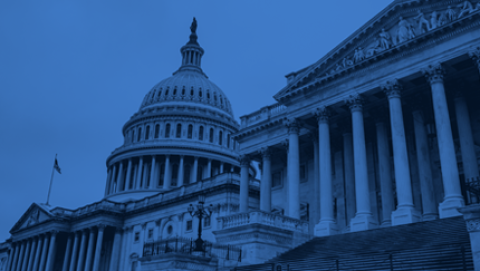Virginia, District 4

Temporary Restraining Order Requested to Stop Dangerous EOIR and ICE Policies During the COVID-19 Pandemic
Immigration groups moved for an emergency temporary restraining order against the Executive Office for Immigration Review and U.S. Immigration and Customs Enforcement in order to protect the health of immigration attorneys, immigrants, and the public from the impact of dangerous and unconstitutional policies during the COVID-19 pandemic. Read More

Statement for the House Committee on Oversight and Government Reform, Subcommittees on National Security and Health Care, Benefits and Administrative Rules on “The Fiscal Costs of the President’s Executive Actions on Immigration”
The statement shares our analysis and research regarding the legal and historical authority for the President's recent deferred action programs, Deferred Action for Childhood Arrivals (DACA) and Deferred Action for Parental Accountability (DAPA), details the significant economic benefits of the deferred actions programs, and explains significant social benefits of the programs. Read More

Richmond Times Dispatch Opinion: Dreamers deserve the opportunity to live without fear of deportation
A year ago today, I was shaken to my core. March 5 was the day when Congress failed to meet the deadline to save the program that gave young immigrants like me, who were brought to this country as children, the right to work and live without fear of deportation. Read More

Student Cried for Joy the Day DACA Announced, Now She’s Fighting to Preserve it
Jessica Moreno Cacho is not only a Dreamer — she’s a doer. She was brought to the United States undocumented from her native Peru by her parents when she was just 8 years old. Her dad had been out of work for more than a year, and crime rates were… Read More

Ecuadoran Businessman Helps New Americans Prosper in Northern California
As executive director of Canal Alliance, a nonprofit in San Rafael, California, Omar Carrera leads work that helps some 5,000 new Americans a year successfully integrate into their new country. “We can save lives because we can break the cycle of poverty, one family at a time,” says Carrera. who… Read More

One Refugee Couple, Dozens of Entrepreneurial Stories
Nadia Kasvin came to the United States under the terms of the Lautenberg Amendment, a 1989 policy that allowed Jews and other religious minorities facing persecution in the former Soviet Union to seek asylum in America. Three years after applying, and after numerous background checks and interviews, Kasvin and her… Read More

Nearly 6 Million Workers Employed at Immigrant-Owned Businesses, New Report Finds
Nearly 6 Million Workers Employed at Immigrant-Owned Businesses, New Report Finds 40.2 Percent of 2016 Fortune 500 Firms Founded by Immigrants or Their Children New York, NY – New American Economy released a report detailing the outsized role immigrants play as entrepreneurs in the U.S. economy. Read More

Georgia Farmer Says Broken Immigration Policy Hurts His Bottom Line
Bill Brim is a lifelong Georgia farmer who’s beyond frustrated with the immigration system’s agriculture guest worker program. Brim relies on the H-2A visa program to hire about 600 migrant workers from Mexico to help harvest the bell peppers, squash, watermelon, broccoli and other produce that grows on his 6,000-acre,… Read More

F- P- v. Holder – Ninth Circuit
Long used in criminal trials, motions to suppress can lead to the exclusion of evidence obtained by the government in violation of the Fourth Amendment, Fifth Amendment, or related provisions of federal law. While the immediate purpose of filing a motion to suppress is to prevent the government from meeting its burden of proof, challenges to unlawfully obtained evidence can also deter future violations by law enforcement officers and thereby protect the rights of other noncitizens. The Supreme Court held in INS v. Lopez-Mendoza, 468 U.S. 1032 (1984), that motions to suppress evidence under the Fourth Amendment in immigration proceedings should be granted only for “egregious” violations or if violations became “widespread.” Despite this stringent standard, noncitizens have prevailed in many cases on motions to suppress. Read More
- 1
- 2
Make a contribution
Make a direct impact on the lives of immigrants.
